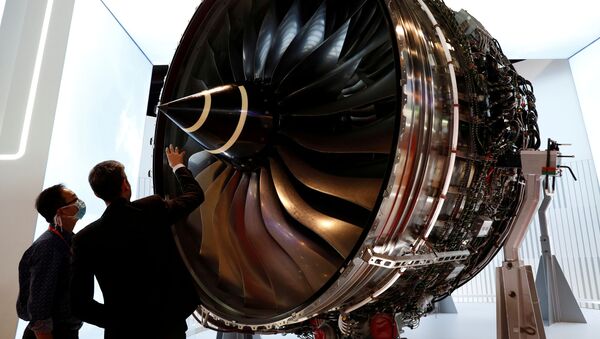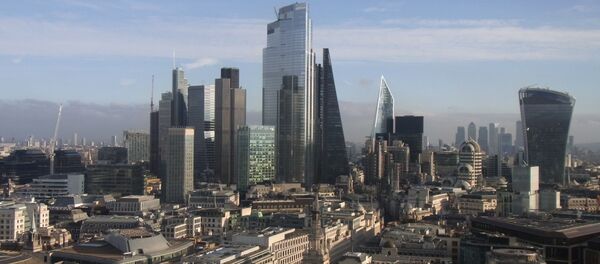Author and financial strategist Bill Blain has spoken in an interview with Sputnik on the prospects for an aviation industry recovery.
Sputnik: In your eyes Bill; what does this huge blow for Rolls Royce represent both for company, shareholders and employees?
Bill Blain: It's been clear since the start of the coronavirus crisis that aerospace and particularly aviation was going to be one of the sectors that would suffer most. We've seen about two thirds of aircraft used for global passenger transport put into some form of storage. Rolls Royce is the most successful and most important manufacturer of aviation engines and clearly they're going to suffer from a downturn in the aviation sector and what we're already seeing is orders for new aircraft being reduced and the aircraft that are currently still operated by airlines not doing so much therefore not requiring the same amount of servicing.
Sputnik: Ok. So, what effect will this likely have on the aviation industry going forwards?
Bill Blain: So, the effect of the coronavirus has directly impacted the bottom line for not just Rolls Royce but right across the whole aerospace sector and then the knock on effect, or the cascade effect that we will see follow that, is all the specialist engineering SMEs that subcontract for companies like British Aerospace, Rolls Royce, General Electric, Boeing, Airbus etc. are all going to struggle. That's going to put a requirement on the Chancellor to make sure that we don't lose the skillsets that are in these companies. They need to find a way to survive over the long term so they can find new markets, new customers, and innovate new products because the Coronavirus has dramatically changed the global economy. It could be years before we see global travel and especially aviation travel restored.
Sputnik: Will we similar companies, which are both profitable and specialized market leaders, make mass redundancies and even go under because of Coronavirus in the future?
Bill Blain: I think the big issue for all the western economies is going to be one of outlook. By that I mean the number of corporates around the globe who are looking at the reality of what the Coronavirus has done - they're very aware that there is going to be a recession caused by the lockdown and that is going to cause them all to reassess their operations. They're going to look to cut debt, they're going to look to be very careful with new investment decisions and one of the things that is bound to happen is they're going to try and control costs and that means probably cutting headcount in areas that they perceive to be underperforming or likely to suffer most from the virus.
That is going to result in a fairly large pool of unemployed workers who see their jobs contract. Now we've seen very clearly the government state that they expect that one in five workers who are currently on the furlough scheme will not be going back to work because of the effects so the crisis. Short term that is going to cause a serious unemployment crisis across all Western economies but long term what it's doing is forcing companies to become more efficient and consider very carefully what they can and can't do. My concern is how long this long persistent unemployment lasts and how quickly government can get workers back into new more efficient jobs. That's the real question about whether we get a W shaped or tick-shaped recovery. I'm fairly impressed by the way that governments around the globe have quickly put in place policies to support businesses and especially to support workers. So, I'm very sure they're aware of the need to make it easy for companies to employ new workers and new businesses but it still means we face maybe up to a year or two years of recession.


